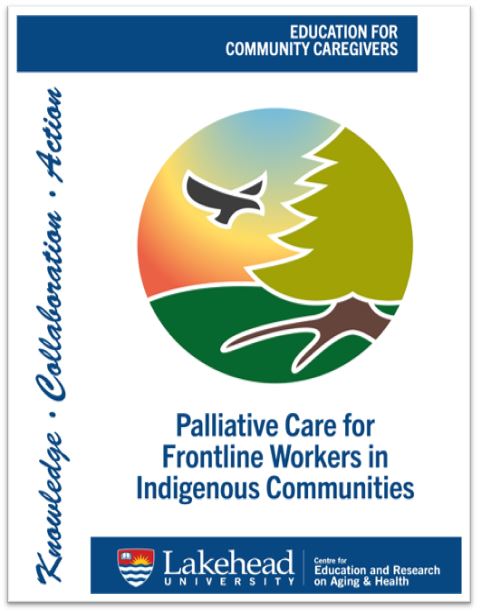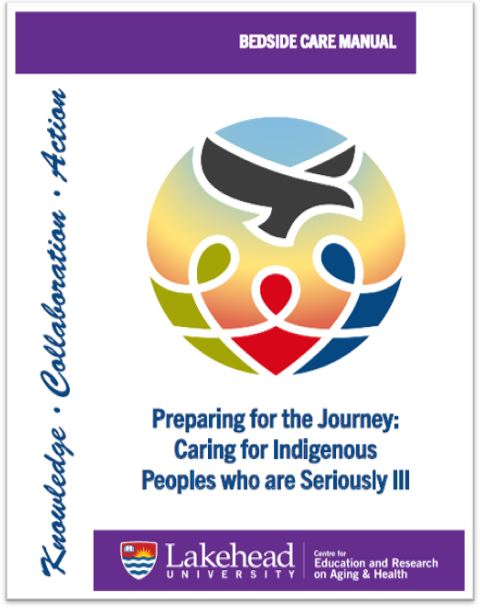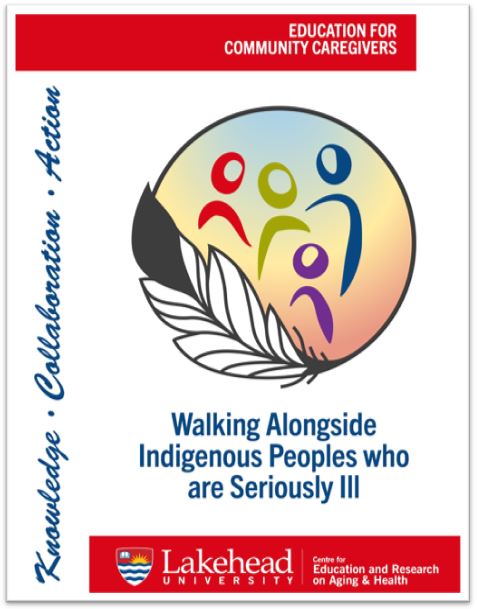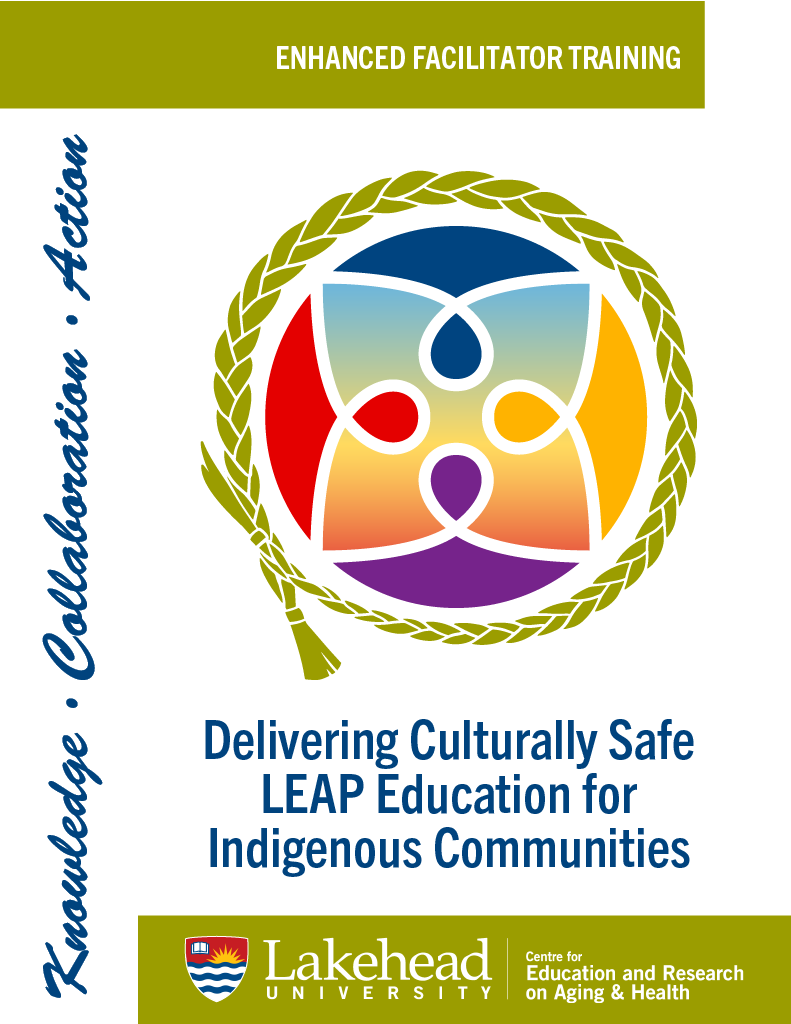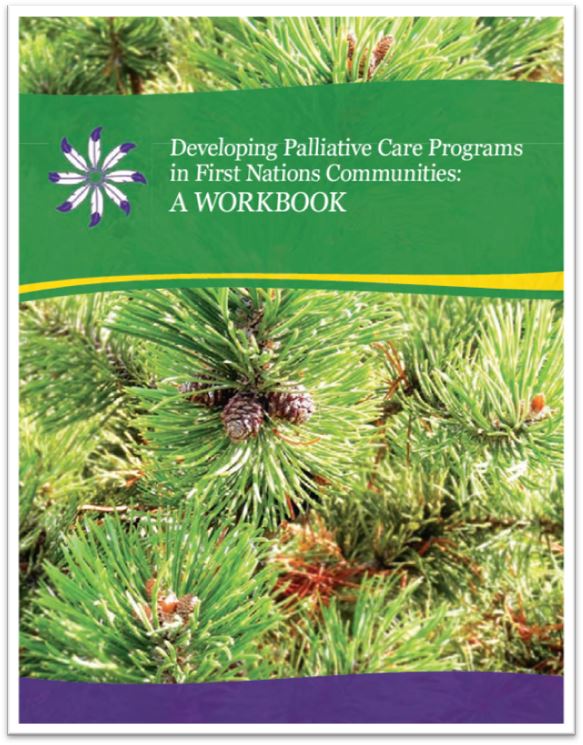Indigenous Peoples’ Health & Aging
CERAH Resources
Palliative Care for Front-Line Workers in Indigenous Communities: Training for Health & Social Care Providers
Curriculum that provides healthcare providers working in Indigenous communities an introduction to palliative care. Workshops are organized and delivered by CERAH.
Preparing for the Journey: Caring for Indigenous Peoples who are Seriously Ill
Resource manual that provides family and community members with guidance and support for caregiving at the bedside. Available for free download.
Walking Alongside Indigenous Peoples who are Seriously Ill: Education for Community Caregivers
Curriculum that provides healthcare providers with resources for educating family and community members caring for people who are seriously ill. Available for free download.
Delivering Culturally Safe LEAP Education for Indigenous Communities: Enhanced Facilitator Training
Designed to support the delivery of culturally safe LEAP Core education for Indigenous Communities by acknowledging Indigenous ways of knowing, being and doing. Workshops are organized and delivered by CERAH.
Improving End of Life Care in First Nations Communities (EOLFN) Project
Workbook with resources for creating a local palliative care program in First Nations communities. Available for free download.
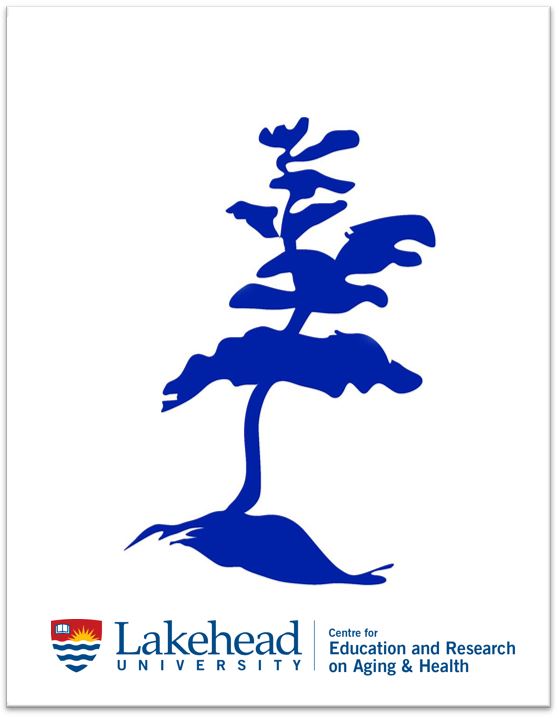
Palliative Care Brochures
CERAH developed resources to support palliative and end of life care in Indigenous communities.
Spiritual
Cultural Practices and Spirituality
- Canadian Virtual Hospice – After Death & Ceremonies
- Canadian Virtual Hospice – Traditions, Rituals, and Spirituality
Podcast - Teachings in the Air - Elder Gerry Oleman
Emotional
Education
Grief
- Canadian Hospice Palliative Care Association – Grief and Bereavement Resource Repository
- Canadian Grief Alliance
- Canadian Hospice Palliative Care Association
- Canadian Virtual Hospice – Emotions and Support
- Canadian Virtual Hospice – Expectations of Care
- Canadian Virtual Hospice – Kids Grief.ca
- Canadian Virtual Hospice – MyGrief.ca
- Hospice Northwest – Grief Support Program
- Local Indigenous Grief & Bereavement Resources
Mental
Advance Care Planning
Dementia
Education
Mental Health
- Canadian Addictions and Mental Health – Aboriginal Service
- Indigenous Services Canada – Mental Health and Wellness in First Nations and Inuit Communities
- The Firelight Group
- NAN Hope
Physical
Canadian Virtual Hospice – Patient and Family
Chronic Disease Management
AIDS/HIV
- Canadian Aids Society – Aboriginal People
- Indigenous Services Canada – HIV in First Nations Living on Reserve
- Canadian Aboriginal AIDS Network CAAN
Cancer
- Cancer Care Ontario – Recommended Resources for First Nations, Inuit, Métis & Urban Indigenous
- Indigenous Cancer Care Unit
Diabetes
- Indigenous Services Canada –Aboriginal Diabetes Initiative
- First Nations Health Authority – Aboriginal Diabetes Initiative Resources
- Diabetes Canada – Indigenous communities and diabetes
Heart Disease
General
Indigenous Wellness Framework
Truth & Reconciliation Commission of Canada
Advocacy and Policy
Children and Youth
- First Nations Child and Family Caring Society – Spirit Bear
- Indigenous Services Canada – Jordan’s Principle
Culturally Safe Resources
